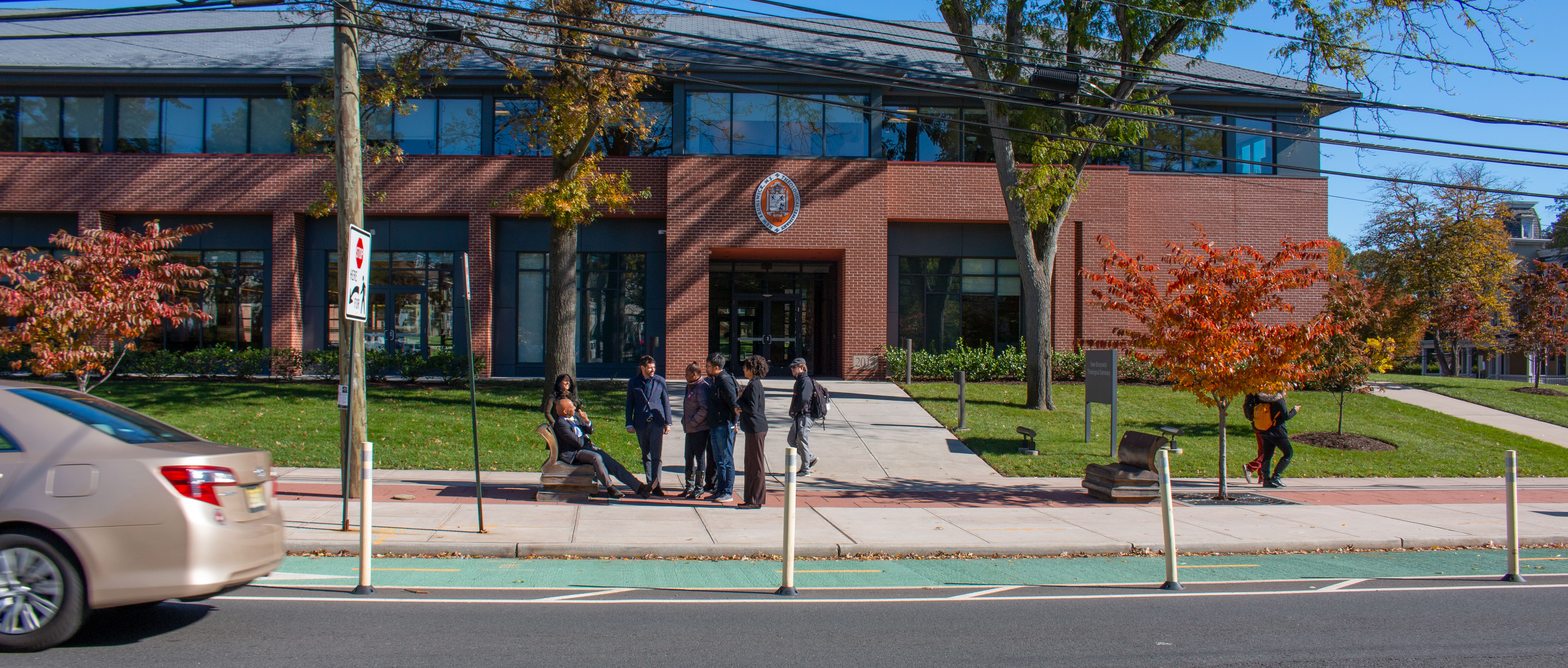President’s Blog #10 – Liminal Space Prayer
September 2, 2020

President’s Blog 10 – Liminal Space Prayer
Then Jesus, being filled with the Holy Spirit, returned from the Jordan and was led by the Spirit into the wilderness, being tempted for forty days by the devil. And in those days He ate nothing, and afterward, when they had ended, He was hungry.
– Luke 4:1–2 The New King James Version. (1982). Nashville: Thomas Nelson.
As we begin this academic year, we are in what is called “liminal space” or threshold space (in Latin, limen means a threshold, a starting line in a race, or a beginning place). Liminal space is a very good phrase for times such as ours when events and places open us up to the sacred (Richard Rohr). In the New Testament, the phrase “when time came to a fullness,” was used to capture the liminal space created by Jesus’ birth or God’s incarnation. We are now in liminal space as our past, present, and future time come together in this current climate and moment. We are now in liminal space as we experience our “right here” torn apart from our “over there”.
We grieve the tragic gap between our world as we knew it and something new and unknown. We grieve for humanity and nature as we simultaneously grapple with our previous life, conscious death, and pending resilient spiritual new appearance.
We grieve the effects of COVID-19 pandemic worldwide. We grieve the 783,000 deaths worldwide. We grieve the deaths of General Synod Professor Emeritus Dr. Allan Janssen [April 3]; Distinguished Alumni Rev. Rufus “Bumpy” McClendon [April 9]; and President Emeritus Dr. Gregg Mast [April 27]. We grieve the recent losses of family members and other loved ones in our community.
We grieve the estimated 18 million people and families who are impacted by unemployment in the United States of America. We grieve the racial and social unrest in our nation, the lawlessness, police violence, oppression, systematic racism and discrimination, gender oppression and violence, domestic terrorism, divisiveness, shadow conspiracies, classism, pathology, homophobia, and the plurality and polarization of thought and action. We seek an antidote to our current chaos and as we reflect on our changing realities during this liminal season – we plead for your mercy, Oh God.
Lord, Seminary is a liminal space. A space that begins with loss – so teach us not to resist loss or liminality but to sit with the ambiguity and disorientation. Help us to find effectiveness in our voices, spaces, places, and organizations during our journey between our endings and our new beginnings. Open us to new possibilities no longer based on old status or power hierarchies. Help us explore and establish new identities and to consider new possibilities as we transition from our old consciousness and old spaces. Reinvent us during our “betwixt and between” so that we face the familiar and the completely unknown with grace and courage. Make it so that we return from our wilderness as Jesus did with power and a new word:
18 “The Spirit of the Lord is upon Me,
Because the Lord has anointed Me
To preach the gospel to the poor;
the Lord has sent Me to heal the brokenhearted,
To proclaim liberty to the captives
And recovery of sight to the blind,
To set at liberty those who are oppressed;
19 To proclaim the acceptable year of the Lord.”
20 Then He closed the book, and gave it back to the attendant and sat down. And the eyes of all who were in the synagogue were fixed on Him. 21 And He began to say to them, “Today this Scripture is fulfilled in your hearing.”
– Luke 4:18–20 The New King James Version. (1982). Nashville: Thomas Nelson.
Micah L. McCreary
President, New Brunswick Theological Seminary
